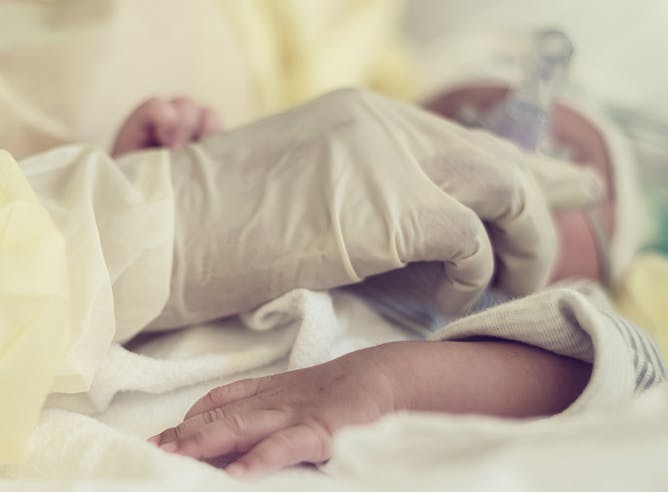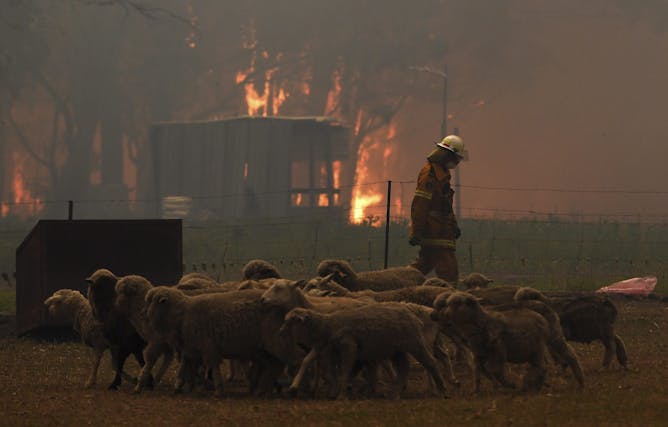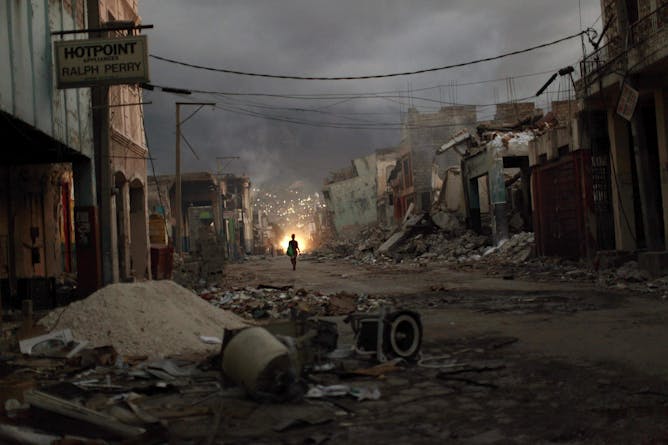|
Two mornings ago, it seemed the United States and Iran were on an inevitable path to war. By yesterday morning, the world seemed just a little less tense. But could the volatile situation flare up once again in the coming days? Today in The Conversation Canada, Bryan Peeler, who researches international law at the University of Manitoba, looks at the latest developments between Washington and Tehran and concludes all-out war seems unlikely at this stage.
We also have an excellent read by three researchers – Anna Banerji of the University of Toronto, Faisal Moola of the University of Guelph and David Suzuki of the University of British Columbia – who have examined the extremely high number of cases of respiratory illnesses among Inuit infants in Arctic Canada and why governments need to provide better access to costly medicine that could help Inuit babies and their families.
The devastating bush fires in Australia have led to the loss of life for both humans and literally millions of animals. But even those critters who escape the flames can be impacted by the thick smoke from the wildfires. Three University of Calgary academics – Stephanie Laura Bond, Laura Osborne and Renaud Leguillette – have researched how animals fared when exposed to wildfires in North America.
Finally, the team at The Conversation Canada wants to extend our sympathies to the many universities we work with that are reeling from the news that some of their students and professors were among those killed in the crash of the Ukraine International Airlines jet in Tehran.
Regards,
|

U.S. President Donald Trump was flanked by military officers as he responded to the ballistic missile strike that Iran launched against Iraqi air bases housing U.S. troops.
AP Photo/Evan Vucci
Bryan Peeler, University of Manitoba
Iran's missile strikes on Iraqi bases in response to the killing of Iranian general Qassem Soleimani have raised tensions between the U.S. and Iran. But war seems unlikely at this point.
|

Healthy, full-term Inuit babies are not eligible for palivizumab even though they have four to 10 times the rate of hospital admission compared to “high-risk” infants.
(Philippe Put/flickr)
Anna Banerji, University of Toronto; David Suzuki, University of British Columbia; Faisal Moola, University of Guelph
A drug called palivizumab can keep babies infected with respiratory syncytial virus (RSV) out of the hospital, but many Inuit babies, who have a higher risk of infection, are not getting it.
|

A rural fire service crew attempts to protect a property in New South Wales in December 2019.
Dean Lewins/AAP Images via AP
Stephanie Laura Bond, University of Calgary; Laura Osborne, University of Calgary; Renaud Leguillette, University of Calgary
Wildfire smoke can damage animals' respiratory tract and lead to breathing problems and even death.
|

Une femme marche dans le centre-ville dévasté de Port-au-Prince, quelques semaines après le séisme du 12 janvier 2010. Dix ans et des milliards de dollars dépensés plus tard, Haïti ne s'est pas relevé de cette tragédie.
AP Photo/Rodrigo Abd, File
Jean-François Savard, École nationale d'administration publique (ENAP); Emmanuel Sael, École nationale d'administration publique (ENAP); Joseph Jr Clormeus, École nationale d'administration publique (ENAP)
10 ans et des milliards de dollars dépensés plus tard, Haïti ne s'est pas relevé du séisme de 2010, en raison de la faiblesse des institutions publiques et de l'inefficacité de l'aide internationale.
|
Environment + Energy
|
-
Dale Nimmo, Charles Sturt University
Wildlife can smell and hear a fire coming, and have developed novel ways to evade it. But they must watch out for cunning predators rushing in for a feed.
|
|
Politics
|
-
Ken Hughes, University of Virginia
An expert on Watergate says that today's House Republicans have taken precisely the opposite position than the GOP took in 1974 on the president's power to withhold documents from Congress.
|
|
Culture + Society
|
-
Reed Blaylock, University of Southern California – Dornsife College of Letters, Arts and Sciences
Pronouns rarely, if ever, change. Then along came the gender nonbinary 'they,' which was just anointed ‘word of the decade.’
|
|